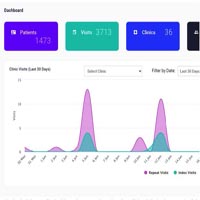Health service delivery for type 1 diabetes during the lockdown in Uganda following the coronavirus disease 2019 pandemic

Submitted: 4 April 2021
Accepted: 11 November 2021
Published: 23 November 2021
Accepted: 11 November 2021
Abstract Views: 896
PDF: 267
Supplementary Figure: 45
HTML: 22
Supplementary Figure: 45
HTML: 22
Publisher's note
All claims expressed in this article are solely those of the authors and do not necessarily represent those of their affiliated organizations, or those of the publisher, the editors and the reviewers. Any product that may be evaluated in this article or claim that may be made by its manufacturer is not guaranteed or endorsed by the publisher.
All claims expressed in this article are solely those of the authors and do not necessarily represent those of their affiliated organizations, or those of the publisher, the editors and the reviewers. Any product that may be evaluated in this article or claim that may be made by its manufacturer is not guaranteed or endorsed by the publisher.

 https://doi.org/10.4081/hls.2021.9799
https://doi.org/10.4081/hls.2021.9799



